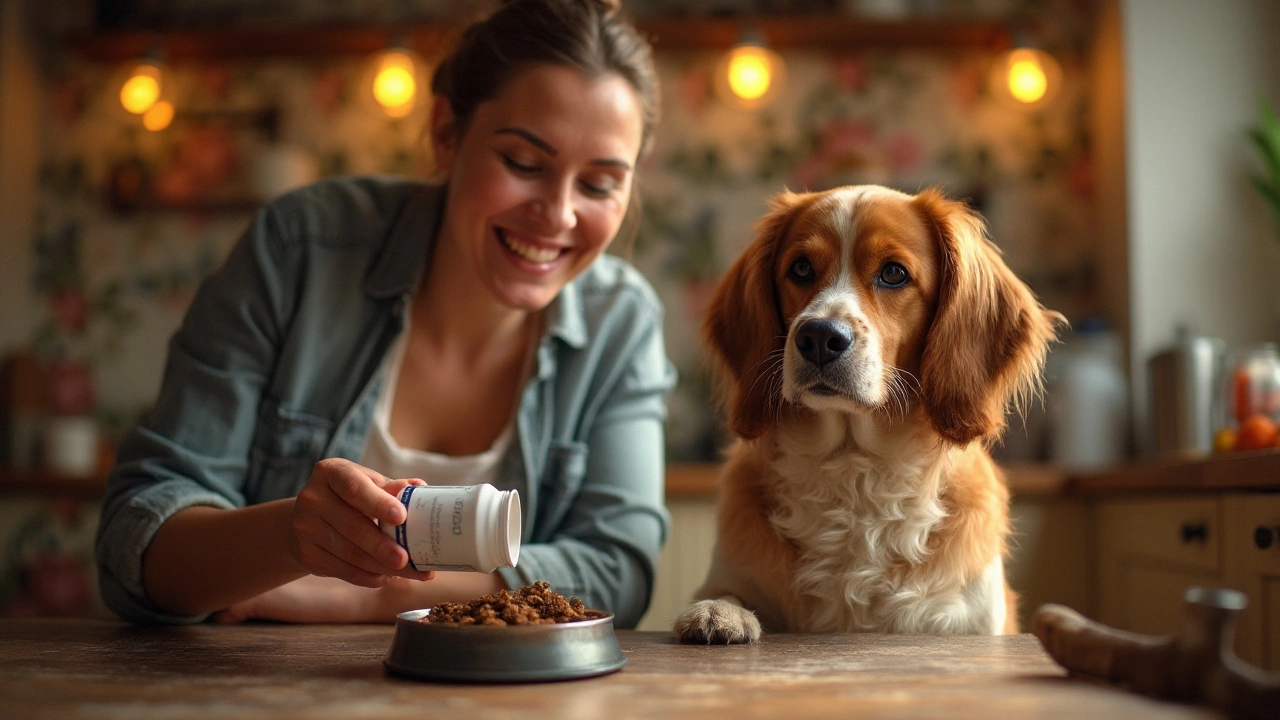Healthy Dogs: Simple Tips to Keep Your Pup in Top Shape
Every dog owner wants a buddy that bounces around with energy, has a shiny coat, and lives a long, happy life. The good news? Most of those goals are within reach with the right daily habits. Below you’ll find quick, no‑fluff advice that you can start using today, plus links to deeper articles for the topics that matter most.
Feeding and Nutrition Made Easy
What you put in the bowl is the foundation of health. Look for treats and meals that list a quality protein first – think chicken, beef, or fish – and avoid vague terms like "meat meal" or "animal digest". Natural ingredients mean less chance of gut irritation and better nutrient absorption.
Portion size matters just as much as the ingredients. Use a measuring cup or kitchen scale, and adjust based on your dog’s activity level and age. A puppy that’s still growing will need more calories per pound than a senior who’s winding down.
Fresh water should always be available. If you notice your dog drinking a lot more than usual, it could be a sign of a health issue, so keep an eye on those habits.
Want to add variety without extra calories? Freeze pureed pumpkin, sweet potato, or carrot chunks for a crunchy snack that also supplies fiber and vitamins. These simple additions can help with digestion and keep the coat glossy.
Training, Exercise & Everyday Care
Exercise isn’t just about a tired pup; it’s a key part of heart health, joint strength, and mental wellbeing. Aim for at least 30 minutes of active play or a brisk walk each day. If your dog loves to fetch, toss a ball in the backyard; if they’re a sniffer, let them lead a hike and explore new scents.
Regular training sessions reinforce good behavior and stimulate the brain. Keep them short – five to ten minutes – and end on a positive note. A “sit” or “stay” command practiced daily can prevent pulling on walks and make vet visits smoother.
Don’t forget the basics of grooming. Brushing a short‑haired dog once a week removes loose fur and distributes natural oils that keep skin healthy. Longer coats may need a brush a few times a week and occasional baths with a gentle dog shampoo.
Routine vet check‑ups catch problems early. Keep vaccinations up to date, and ask your vet about flea, tick, and worm preventatives that suit your lifestyle. A quick blood test once a year can also flag hidden issues before they become serious.
Lastly, mental enrichment matters just as much as physical activity. Puzzle toys, frozen treats, or a simple hide‑and‑seek game with their favorite chew keeps boredom at bay and reduces anxiety.
Putting these easy steps together creates a solid routine that supports a healthy dog for years to come. Browse the articles below for deeper dives on each topic, from choosing the best dog treats to understanding how long a dog can really hold its bladder overnight. Your dog’s well‑being starts with the choices you make every day – and they’ll thank you with wagging tails and a sparkle in their eyes.

Daily Additions for Optimal Dog Health
Adding the right supplements to your dog's food daily can significantly improve their health and well-being. This article explores essential dog health supplements that can be easily incorporated into their diet to address common nutritional gaps. From omega-3s supporting joint and skin health to probiotics aiding digestion, these additions can make a noticeable difference. Learn practical tips and interesting facts to enhance your dog's daily nutrition safely and effectively.
View more